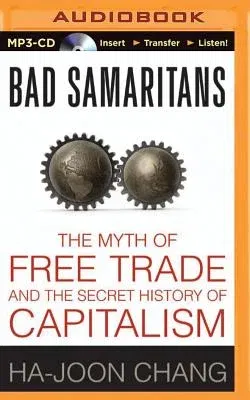With irreverent wit, an engagingly personal style, and a battery of
real-life examples, Ha-Joon Chang blasts holes in the "World Is Flat"
orthodoxy of Thomas Friedman and other neo-liberal economists who argue
that only unfettered capitalism and wide-open international trade can
lift struggling nations out of poverty. On the contrary, Chang shows,
today's economic superpowers--from the United States to Britain to his
native South Korea--all attained prosperity by shameless protectionism
and government intervention in industry. We in the wealthy nations have
conveniently forgotten this fact, telling ourselves a fairy tale about
the magic of free trade and--via our proxies such as the World Bank,
International Monetary Fund, and World Trade Organization--ramming
policies that suit ourselves down the throat of the developing world.
Unlike typical economists who construct models of how economies are
supposed to behave, Chang examines the past: what has actually happened.
His pungently contrarian history demolishes one pillar after another of
free-market mythology. We treat patents and copyrights as
sacrosanct--but developed our own industries by studiously copying
others' technologies. We insist that centrally planned economies stifle
growth--but many developing countries had higher GDP growth before they
were pressured into deregulating their economies. Both justice and
common sense, Chang argues, demand that we reevaluate the policies we
force on weaker nations. Bad Samaritans calls on America to return to
its abandoned role, embodied in programs like the Marshall Plan, to
offer a helping hand, instead of a closed fist, to countries struggling
to follow in our footsteps.

